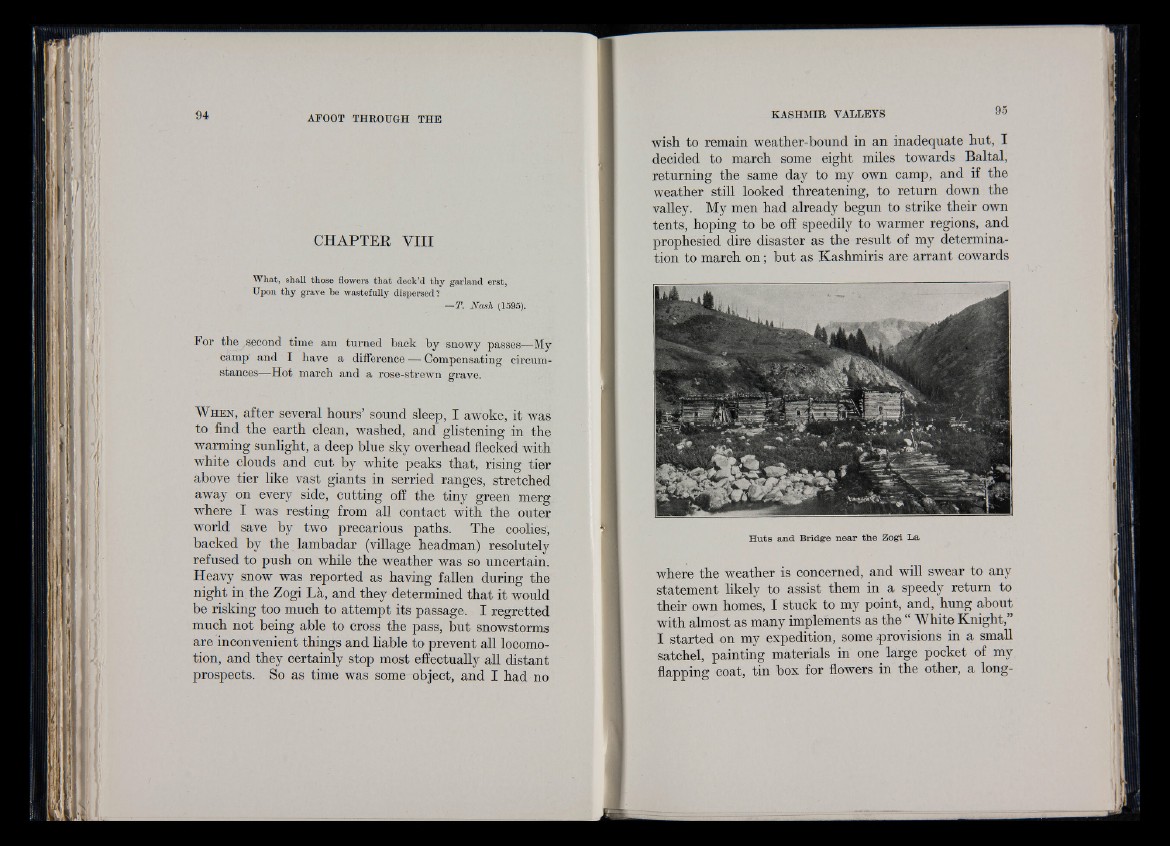
CHAPTER V III
What, shall those flowers th a t deck’d thy garland erst,
Upon thy grave be wastefully dispersed?
Nash (1595).
For the ,%econd time am turned back by snowy passes—My
camp' and I have a difference — Compensating circumstances—
Hot march and a rose-strewn grave.
W h e n , after several hours’ sound sleep, I awoke, it was
to find the earth clean, washed, and glistening in the
wanning sunlight, a deep blue sky overhead flecked with
white clouds and cut by white peaks that, rising tier
above tier like vast giants in serried ranges, stretched
away on every side, cutting off the tiny green merg
where I was resting from all contact with the outer
world save by two precarious paths. The coolies;
backed by the lambadar (village headman) resolutely
refused to push on while the weather was so uncertain.
Heavy snow was reported as having fallen during the
night in the Zogi La, and they determined that it would
be risking too much to attempt its passage. I regretted
much not being able to cross the pass, but snowstorms
are inconvenient things and liable to prevent all locomotion,
and they certainly stop most effectually all distant
prospects. So as time was some object, and I had no
wish to remain weather-bound in an inadequate hut, I
decided to march some eight miles towards Baltal,
returning the same day to my own camp, and if the
weather still looked threatening, to return down the
valley. My men had already begun to strike their own
tents, hoping to be off speedily to warmer regions, and
prophesied dire disaster as the result of my determination
to march on; but as Kashmiris are arrant cowards
Huts and Bridge near th e Zogi La
where the weather is concerned, and will swear to any
statement likely to assist them in a speedy return to
their own homes, I stuck to my point, and, hung about
with almost as many implements as the “ White Knight,”
I started on my expedition, some «provisions in a small
satchel, painting materials in one large pocket of my
flapping coat, tin box for flowers in the other, a long